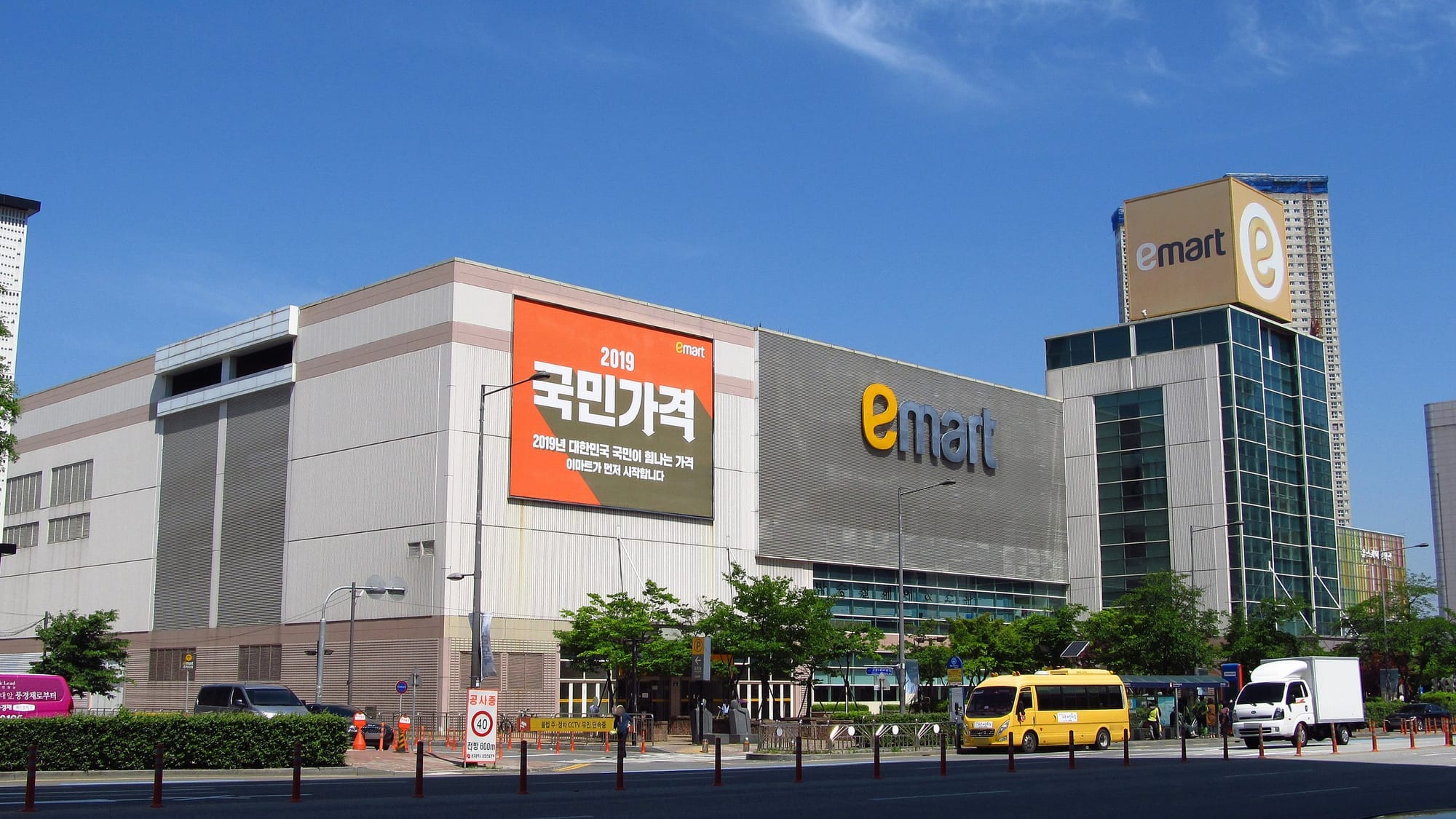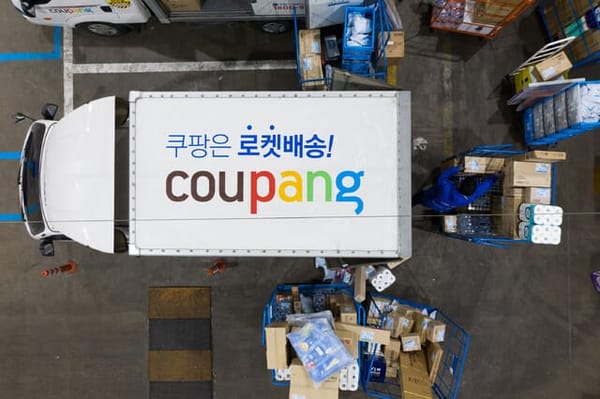Photo: Emart in Gwangju. Credit: Public domain.
For the first time in its 31-year history, Emart announced on March 25 that it would accept voluntary resignations from employees - a typical precursor to mass layoffs. The announcement came on the heels of Emart’s public disclosure in February that it lost money in 2022 for the first time in twelve years.
Founded in 1993, Emart was South Korea’s first “big box” discount store, similar to Walmart or Target in the United States. Catering to the increasing sophistication and spending power of Korea’s newly emerging middle class, Emart bested international rivals like Tesco, Carrefour and Wal-Mart to become South Korea’s leading discount store by the mid-2000s. But Emart’s slow adoption of e-commerce has undermined its profitability, and domestic and international competitors like Coupang 쿠팡 or China’s AliExpress have eaten into Emart’s market share.
Emart’s difficulties also reflect the overall weakness of its holding chaebol 재벌, the Shinsegae Group 신세계 그룹. The group’s construction company, Shinsegae Engineering & Construction, Inc. 신세계 건설, has been hit hard by South Korea’s weakening real estate market, and is estimated to owe as much as KRW 1t (USD 850m). To rescue the construction company, of which Emart owns 42.7%, Emart is exploring a partial sale of its most profitable subsidiaries - the SCK Company, which operates Starbucks Coffee Korea, and No Brand 노브랜드, a discount food and household goods manufacturer.








